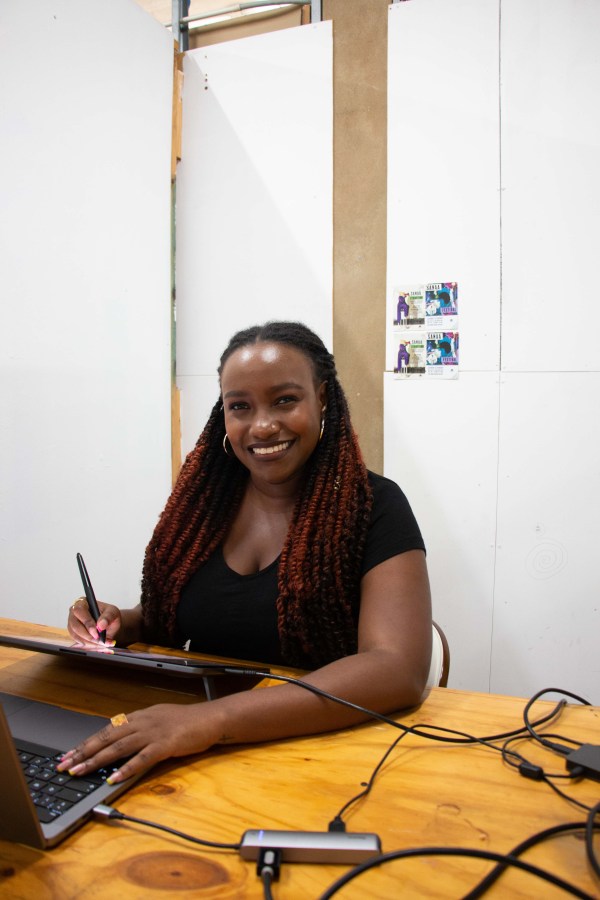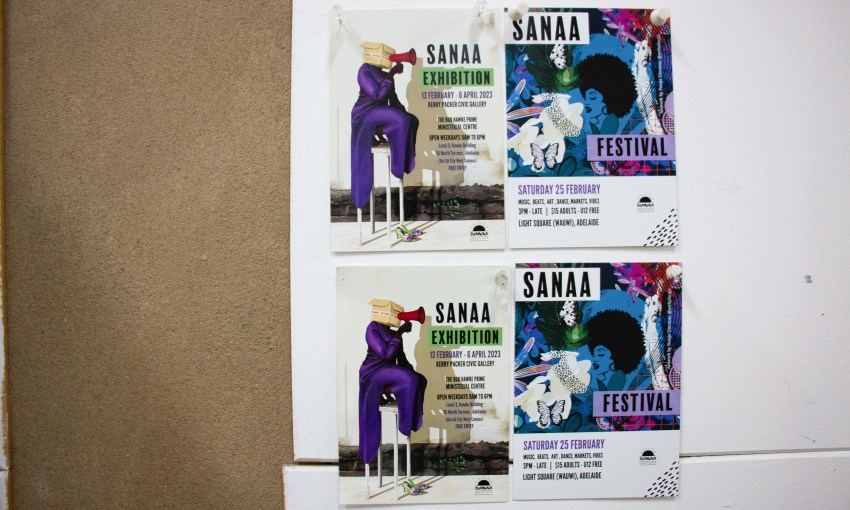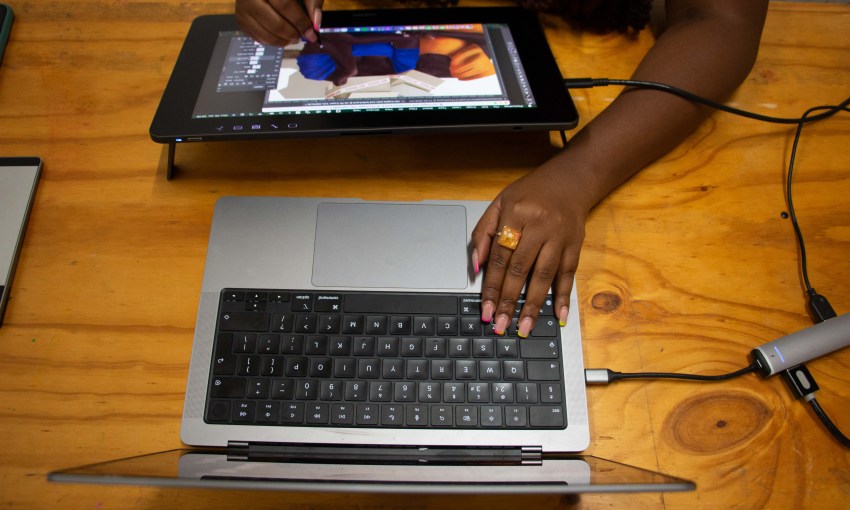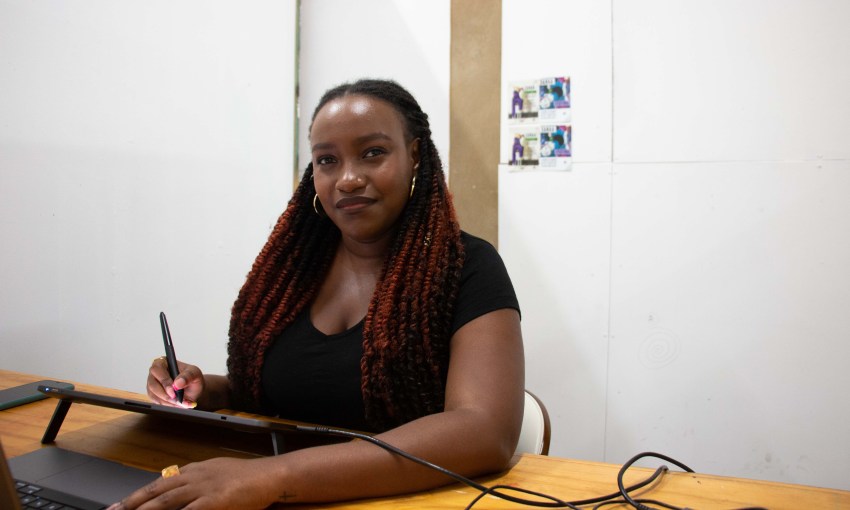In the seventh iteration of African art and creativity celebration Sanaa, the Adelaide festival will be bigger, bolder and even more proud of its roots.
Sanaa Festival ‘raises the banner’ for multiculturalism
Beni Poppin moves like liquid mercury. Videos uploaded to social media of the Burundi-born street ballerina performing at African talent shows and on roads abutting driveways show an artist totally comfortable with their limbs, hands and feet.
The dancer, whose real name is Benjamin Muhoza, describes his style as contemporary. This makes sense to us, as he mostly moves to hip hop and RnB. For example, in clips posted Instagram Beni bops to Bop Daddy’s ‘Falz’ and melts to Barnaba$’s ‘Holding On’.
Beni, who is one of around 10 performers scheduled to appear at Sanaa Festival this month, started as a self-taught dancer in East Africa, but over time the medium transformed into a means of articulating his identity, especially in his new home of Adelaide.
“It makes me be who I am, and [helps me] be able to express myself,” Beni says.
“When I was around eight years old, I discovered it was something that I enjoyed and loved, and then as I grew up I [found] out that it was something that is part of me.”
In addition to his performance at Sanaa, happening on Saturday, 25 February, Beni will also host hip-hop dancing workshops as part of the event.
View this post on Instagram
Sanaa Festival is in its seventh year, and has built a reputation as a celebration of visual arts, movement and music from the African continent.
Although its main focus is artists from from that diverse pocket of the world, the one-day event also bills live performances and exhibitions from artists from other places.
This year’s lineup includes Nukunu indie-pop singer Tilly Tjala Thomas and Melbourne-based Cumbia (think: Colombian salsa) trio, The New Monos.
Back in 2017, CityMag spoke to Sanaa founder Victoria Lewis on the cusp of its first edition. She told us the celebratory event was born from a place of power, intended as a way to showcase the ability of art to transform people’s lives. This is something she saw firsthand while shooting a documentary in Kenya and Tanzania two years prior.

Charlene Komuntale at The Mill
Charlene Komuntale is a digital artist from Kampala, Uganda. She speaks to us from behind a desk populated with her artistic arsenal: two Wacom tablets, a computer, and a copy of Frieze Magazine as reference material.
Set up inside the sprawling inner-city arts studio The Mill, Charlene is in Adelaide as part of a six-week artistic residency in South Australia. Her goal is to complete and display three digital artworks as part of the Sanaa Exhibition.
“I do digital paintings of Black women,” Charlene says of her practice, showing us a work-in-progress painting on Photoshop.
“It’s more a surrealist style, so the heads of my women aren’t necessarily there. I replaced them with a box, which has an unapologetic message: it says ‘not fragile’. The box is open [and] it’s supposed to symbolise the freedom, because many people have been boxed into these ideas and ideologies.”
Charlene says her work tackles universal themes such as the patriarchy and racial and cultural stereotypes. She is also in total support of Sanaa — which sponsored her travel here with help from principal partner, local law firm LK — and backs the not-for-profit’s agenda of “connecting different worlds” through creativity.
South Sudanese-born actor Stephen Tongun — who moonlights as a master of ceremonies at weddings under the nom de plume MC Top Gun — has worked with Sanaa Festival since its inception.
The festival board member speaks to us over the phone two days after MCing a friend’s wedding. His voice still husky, Stephen describes the nuptials, which wedded a Burundi bride and a Sicilian groom, as a “beautiful mix of culture”.
To Stephen, Sanaa has a similar aim – to “create a better world through creativity” and amplify harmony between cultures.
“We are better together and inclusion is one of [the world’s] greatest assets,” he says.
“We just want to continue raising the banner high in terms of inclusivity, in terms of multiculturalism, and, importantly, in terms of celebrating life and art.”
Creativity can be a binding agent, Stephen says, one which brings people together when language fails.
“Art is one of those languages that speaks universally,” he says.
Stephen reiterates that Sanaa Festival is open to everyone, and attendees should expect the happening to explode with energy, vibrancy and pride.
Sanaa is not known for holding back, and he says the 2023 edition will be no exception.
“This year is going to be so much more special, because after a certain sort of stale period with regards to COVID, this is really good build-up and it seems as though the world has opened up again,” he says.
View this post on Instagram






